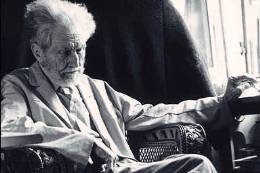 The beneficial effects of testosterone therapy on muscle mass and strength are short-lived in elderly men, according to a study that will appear in the Journal of Clinical Endocrinology & Metabolism.
The beneficial effects of testosterone therapy on muscle mass and strength are short-lived in elderly men, according to a study that will appear in the Journal of Clinical Endocrinology & Metabolism. Loss of muscle mass occurs when testosterone levels naturally decline with age and replacement therapy is becoming more common. Short-term testosterone treatment in frail elderly men has been shown to improve muscle mass and strength, but until now it has been unclear whether these effects could be maintained post-treatment.
"Since the use of testosterone in elderly men raises concerns regarding adverse effects on the prostate and cardiovascular system, it's important to determine if short-term treatment can lead to prolonged benefits beyond the duration of testosterone exposure," said study author Frederick Wu. "Our findings suggest it may not be possible to break or interrupt the cycle of decline in physical function by short-term anabolic pharmacological intervention."
Wu and his co-researchers evaluated 274 elderly men aged 65-90 years with low testosterone levels. The study participants received either a testosterone gel or placebo for six months and assessments were carried out at the beginning of treatment, the end of treatment and six months after treatment cessation. Disappointingly, the researchers found that the increased lean body mass, muscle strength and quality of life after six months of testosterone treatment were not maintained once treatment ceased.
Wu thinks a more holistic approach might work better. "To best interrupt the downward spiral into frailty a greater emphasis should be placed on a multi-disciplinary interventional approach including resistance exercise, diet and other lifestyle options, in conjunction with pharmacological agents."
Related:
Food-packaging behind rising testosterone levels?
Andropause (Male Menopause)
Low Testosterone Linked To Alzheimer's
Testosterone Deficiency Relatively Rare, But Will Rise Dramatically
Source: The Endocrine Society

